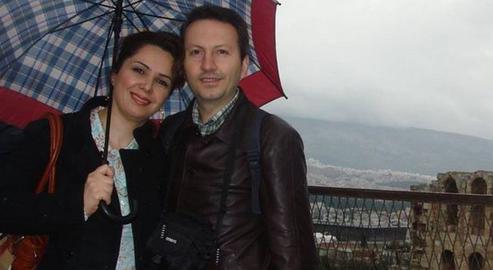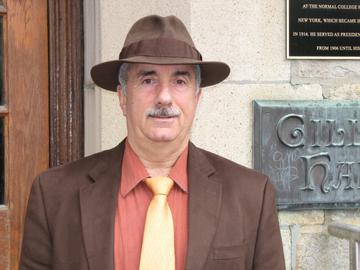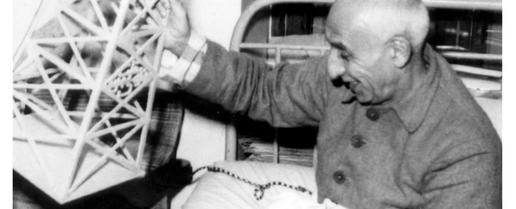An advocate for scientists’ rights has raised the alarm over the appalling treatment of some of the best and brightest visitors to Iran, as the outrageous case of Ahmad Reza Jalali enters its fifth year.
Physicist Eugene Chudnovsky is a co-chair of the Committee of Concerned Scientists, a body set up to protect the human rights and scientific freedom of researchers, engineers and scholars around the world. He and colleagues are alarmed by reports of the deteriorating health of Ahmad Reza Jalali, a lecturer imprisoned in the country since 2016.
This week IranWire released a short documentary, The Treacherous Host, which documents the Islamic Republic’s kidnapping and four-year imprisonment of Nizar Zakka, a Lebanese IT specialist and secretary-general of the Beirut-based Arab ICT Organisation.
Like Dr. Jalali, Nizar Zakka had come to Tehran in 2015 on an official invitation. Zakka had come to speak at a conference about opening up the Iranian ICT sector to the wider world and Jalali had been invited by Iranian academics in his capacity as a disaster relief specialist: two similarly benevolent missions. In Zakka’s case, his trip to Iran was even espoused by the Iranian government at the time.
While in Iran, Zakka was kidnapped by forces loyal to Ayatollah Khamenei and convicted of espionage by Abolghasem Salavati, a notorious “hanging judge” who presides over Branch 15 of the Tehran Revolutionary Court. It took four years to secure his release.
“Sometimes,” Chudnovsky said of Zakka’s video testimony, “these things need to be shown and advertised. I hope the film will have a large audience because Nizar’s descriptions were so familiar. I’ve heard the same thing over 25 years. He describes the physical torture well. And his description of Judge Salavati, as a man who just does what he’s asked to do by the regime, was quite right.”
Anxiety as Fate of Ahmad Reza Jalali Hangs in the Balance
The case of Ahmad Reza Jalali bears some similarities to that of Nizar Zakka and is, Chudnovsky says, one of the most “egregious” examples of the politically-motivated kidnapping of academics by the Iranian regime in recent years.
Ahmad Reza Jalali is a Swedish-Iranian physician and researcher specializing in disaster relief medicine, who before his arrest was teaching at Vrije University Brussel (VUB) in Belgium. In April 2016 he visited Iran on the invitation of Tehran and Shiran Universities. There, he was arrested on the orders of the Ministry of Intelligence, and later transferred to Evin Prison.
After seven months in detention, in a show-trial at Branch 15 of the Revolutionary Court in January 2017, Dr. Jalali was formally charged with espionage on behalf of Israeli Mossad. Prosecutors said the "agent" had conspired with Israel to assassinate four Iranian nuclear scientists between 2010 and 2012: charges he and his family categorically deny. In October 2017, he was sentenced to death.
Dr. Jalali was subjected to severe physical and psychological abuse in Evin Prison. He has repeatedly said he was forced to confess under torture. But in late 2018, a “documentary” featuring the alleged confession, which Dr. Jalali says he signed under threat of execution and of violence to his family in Iran, was broadcast to the nation on Iranian state TV. Just as had been done in the case of Nizar Zakka and other high-profile prisoners, the video aimed to convince the Iranian public that its subject was a threat to national security.
Since then, despite interventions by the United Nations Human Rights Council, Amnesty International and 121 Nobel Laureates who penned an open letter to Ali Khamenei in December 2018, petitions for judicial review of Dr. Jalali’s case have been rejected by Iran.
There are mounting concerns for Dr. Jalali’s health as he has multiple illnesses that make him vulnerable to coronavirus, while his physical condition has deteriorated badly behind bars. His family and lawyers have been unable to secure temporary release for him during the pandemic.
“The last we heard,” Chudnovsky told IranWire, “is that he’s in really poor health. He’s lost a lot of weight; he’s half the Ahmad Reza Jalali he was four years ago. Everybody is very concerned.
“Iran has put itself in a corner because they can’t release him now. They accused him of collaborating with Israeli Mossad in an assassination. Then they put him on national TV with a false confession, which was aired to the entire population. How can they release him now? They created this false case and now, I think, they want him to die of natural causes rather than execute him.”
Two years before his arrest, Chudnovsky says, Dr. Jalali was approached by agents of the Islamic Republic in Sweden. This, and the fact that he was then officially invited to Iran in 2016, has led Chudnovsky and others to believe his detention was staged from the beginning.
“I think it was all planned,” he said. “In 2014 Ahmad Reza Jalali was approached in Stockholm by members of the Iranian intelligence. Because his field was emergency medicine, they wanted information on critical structures in Europe. He refused, and they were upset by that. I believe this was an attempt at retaliation.”
A Hostile Environment for Academics
The Committee of Concerned Scientists is currently following a number of “active cases” of arbitrary imprisonment of colleagues in Iran. These include the Australian academic Kylie Moore-Gilbert, the French-Iranian anthropologist Fariba Adelkah and also of Iranian scholars such as Amirhossein Moradi, a physics student whose death sentence was commuted by Iran last month.
At a time when Iran’s brain drain is posing a very real threat to future development in the country, scholars and luminaries in the Islamic Republic are being targeted by the regime. “If the IRGC [Revolutionary Guards] were reasonable, smart, pragmatic people, this wouldn’t happen,” says Chudnovsky. “It’s a very dark force.”
Chudnovsky has come to the sad conclusion that foreign academics who believe the regime might take exception to any aspect of their work – or could find fault in it for political purposes – should not visit Iran. Worse, he said, this extends to all Iranian students studying abroad.
“For Iranian citizens,” he said, “especially students who study abroad regardless of what they study, it’s really dangerous to go back to Iran in the middle of your studies. You might be asked to spy for Iranian intelligence and if you don’t agree, you may be arrested. I’m sure most of those abroad want to come back to Iran but are now trying not to.”
Related coverage:
The Treacherous Host: An IranWire Film
Nobel Laureate: It Takes Moral Courage to Speak Out
Jailed Briton's Daughter: If You're Real Muslims, How Can You Sleep at Night?
US Embassy Hostage Crisis Survivor: No-one is a Guest in Iran
Persecuted Lawyer: Nizar Zakka Had a Happy Ending, But We Did Not
visit the accountability section
In this section of Iran Wire, you can contact the officials and launch your campaign for various problems


























comments